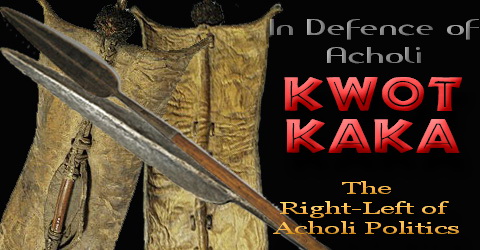{UAH} Should we review qualification for a Member of Parliament?
Should we review qualification for a Member of Parliament?
Parliament has been the centre of attention for the past few months; red headbands, exchange of blows, a gun in the Parliament chambers and plain-clothed security operatives barging in to "arrest MPs" and terrorise journalists for doing their work. There has been a letter from the Speaker and an alleged response from the President.
There are many dramatic parliaments, but when your television screen shows you exchange of blows during a news bulletin, you might catch yourself sighing and wondering who even voted for them – or if you are honest with yourself and see your own MP throwing a punch, why you voted for them.
Many have questioned their qualifications. Who and how does one qualify to become a Member of Parliament? In a country where everyone assumes a lot of vote rigging, where many have "inherited" seats from deceased family members, it is a valid question.
As per the Parliamentary Elections Act (Clause 4), a person qualifies to be a Member of Parliament if they have completed a minimum of formal education of Advanced Level standard or its equivalent. Many Ugandans on social media and beyond have criticised the chaos following the age limit debate saying most of our parliamentarians only have the minimum education requirement. Basically, they are like a house of Senior Six leavers.
But they are not. We have, by education standards alone, a very elite Parliament. Recent research by Parliament Watch Uganda, an online tracker and monitor on Parliament, revealed that only 0.2 per cent of the parliamentarians are Senior Six leavers.
According to this research, 3.7 per cent have PhDs, 39.4 per cent have Masters' degrees, 48.7 per cent have Bachelors' degrees, 6.5 per cent have diplomas, and 1.4 per cent have certificates.
The research also revealed that professionally, 16 per cent of the parliamentarians are teachers, 12 per cent are social workers, nine per cent are lawyers, nine per cent are accountants, eight per cent are administrators, five per cent are economists, four per cent are engineers, theree per cent are journalists and others make up 34 per cent. These figures are fairly representative of the Ugandan working class.
It is clear that our Parliament is made up of well-educated and experienced professionals, and yet the quality of debate, engagement and even the Bills tabled and the laws passed continue to deteriorate.
Is it time to consider more than academic qualifications for one to stand for election to the office? When they offer themselves up to represent constituents in Parliament, should we ask them for more than their academic paperwork? And as we have seen in many court cases in the post-election period, not all of them even present genuine records.
In Plato's dialogue, The Republic, the character Socrates says there will be no end to the troubles of the State and humanity in general unless either philosophers become rulers or those who are currently rulers become philosophers.
A philosopher being a person who takes the time to study and attempt to understand their society and would, therefore, govern according to the needs of the people. The academic qualifications requirement for a Member of Parliament was probably inserted on the basis of this argument.
The presumption of the law makers being someone who is well-educated and armed with a university degree will be able to reason logically.
However, as Parliament becomes one of the biggest employers in Uganda, academic qualifications have proved to be an inadequate filter through which to choose those most suited to make laws. And let's face it, our education system is broken and has been broken for a long time. To what extent do we want our law makers to be skilled and experienced and to what extent do we want them to be a lot like us?
There is a lot to be said for us being a bit more demanding that the people who represent us actually demonstrate that they are in it to improve the quality of life of Ugandans, and not to get an iPad on taxpayers' money.
Ms Kemigisa is the head of content
at Centre for Policy Analysis

Disclaimer:Everyone posting to this Forum bears the sole responsibility for any legal consequences of his or her postings, and hence statements and facts must be presented responsibly. Your continued membership signifies that you agree to this disclaimer and pledge to abide by our Rules and Guidelines.To unsubscribe from this group, send email to: ugandans-at-heart+unsubscribe@googlegroups.com






0 comments:
Post a Comment